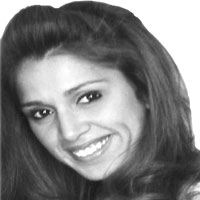Opinion All thats on the Afghan ballot today
Afghanistan votes for its parliament today,and there is hope that the election may be less fraught than the presidential election a year ago.
Afghanistan votes for its parliament today,and there is hope that the election may be less fraught than the presidential election a year ago.
How is the parliament structured?
The legislative branch of the National Assembly of the Islamic Republic of Afghanistan consists of two houses: the Wolesi Jirga (House of the People) and the Meshrano Jirga (House of Elders). Of the two,the Wolesi Jirga is more powerful. Its 250 members are elected through proportional representation and it is constitutionally mandated that 64 members two from each province be women. Increasingly the body has been providing checks and balances to presidential authority. In the aftermath of the presidential elections,the Wolesi Jirga flexed its muscles by blocking President Hamid Karzais choices for cabinet positions. Today,registered voters will cast their ballots for one candidate in their home province,or for a group of national candidates if theyre part of the nomadic Kuchi tribe. Kabul has the largest number of seats (33). Those elected will serve a five-year term.
Who is standing for election?
Candidates come from across the strata,warlords to popstars. 2,556 of them,including more than 400 women,are in the fray. Candidates run as independents,as the law bars party registration in order to prevent ethnic factionalism. Election officers indicate more than half of the candidates are under the age of 30. Robina Jalali,25,a former Olympic runner,is vying for a seat to champion the rights of women and young people against lawmakers who want to deny them. Zabihullah Jawanmard,known as the Elvis of Afghanistan,is also in the race.
What are the logistics?
Of the 17.5 million registered voters,election officers say they will be able to accommodate 11.3 million voters casting ballots. Polls will open at 7 am and close at 4 pm; should extra time be required,the Election Commission can extend it through a decree. Preliminary results will be released by October 1 and the final results are expected by October 31.
What about security?
The Afghan interior ministry has 52,000 policemen on duty but the figure could be pushed up to 110,000,as the Afghan National Army and ISAF soldiers will also be on guard. There will be no police or security in nine southern districts where Taliban militants are active. Due to security reasons 938 of 6,835 polling centres will remain closed. ISAF forces will be involved in intelligence sharing,quick reaction,air and ground logistical support and aerial reconnaissance. The Taliban have vowed to derail the election. Last years presidential election saw the Taliban carry out a record number of attacks resulting in low voter turnout. The UN,cautious about security,has evacuated a third of its permanent workforce.
What about fears of fraud?
Some anti-fraud measures are in place: each voter must dip a finger in indelible ink when casting a ballot to prevent multiple voting; an election official will be present at each polling station,ensuring that each voter is carrying one voter card and is over the age of 18; ballots have been marked with serial numbers so that they can be traced to specific polling sites. Election officials have taken extra precautions to ensure that no additional polling stations open at the last minute,in order to prevent ghost polling sites. But forged voter registration cards have been found in the troubled Ghazni province. Intelligence officials seized 3,000 forged voting cards printed in Pakistan. About 7,000 independent election observers from the local Free and Fair Election Foundation of Afghanistan will monitor the elections and individual candidates will have candidate-agents.
Have the electoral laws been reformed after last years presidential election?
The past year saw Karzai attempt to reform the UN-backed Election Complaints Commission (ECC),the very panel that uncovered fraud during the presidential elections. Over the course of the year,Karzai has sought to gain authority over the ECC through a controversial decree in February that would have allowed him to choose all members of the body,stripping the UN of control of the independent commission. The stage was set for a political showdown between the legislature and the president,but the Obama administrations reaction and international criticism forced Karzai to give the UN the right to recommend two of the ECCs five members. The other body,the Independent Election Commission,consists of Karzai appointees.
What is Karzais relationship with the parliament like?
Troublesome. Karzai has had parliament vote against his nominees often,for reasons he considers unknown and inexplicable. However,Karzai does open up to parliament: he has famously and openly declared to parliamentarians that his frustrations with the West may force him to join the Taliban.


